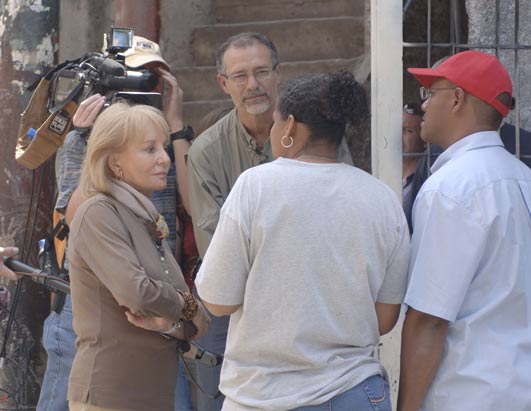Cuban Bloggers and the Cuba-US Reality
As for Cuban websites where free thoughts are being displayed for us to watch, it seems there are new ones every day. There are listings of many Cuban blogs here, here and here. I'm afraid a good many seem stubbornly intent on telling the world their side of the story... the same lefty "fundamentalism" I dare peddle here.
In my 20 minute scan of the sites, I think Marc was looking for something like this - which thanks CANF and the US Govt right there on the front page. But I think Marc might like this guy. My initial favorites are this one and this one (great photos). Here's what a Cubano thinks of the recent airing of Gore's "Inconvenient Truth." Want a Cuban study of Cuban blogs, or one called Free Cuba Ideas? Negro Cubana is here. And here's another good one...
There are many more. Last month I came across a Cuban writer's blog that published the UNEAC statement opposing the Government (see prev.) before the Govt reacted. I read a couple other very interesting discussions of the recent Cuban movie "Havana Suite," which was as much a a critique of post-special period Cuba as anything the CIA could devise. I've already mentioned the periodic Rebelde articles and the opposition figures who have their own websites and (small) followings, the truth about the internet, the existence and open work of independent NGOs and Cuba's judicial system...

Cooper, like most Americans I reckon (and especially journos), thinks politics has to be a battle. They think that the 49% percent minority battling the 51% majority is normal and even preferable, to concensus and win-win decisions that only socialism allows. If half the country isn't calling for the sacking of Raul, then coercion must be to blame. The unity in Cuba is the most palatable thing you feel there, but Cooper denies its existence.
I'll give Cooper credit for admitting "most" "prisoners of conscience" were on the US pay. But he artfully twists my arguments. I have always said if you show me ANY example of someone being repressed who is free from DC or Miami (or Prague nowadays) ties, then I will consider that lowly. He appears to give up some ground on US-Cuba policy, but I still see very little room between Bush's policy and his own. One would think someone like Cooper, would be looking ahead and wondering what he can do to ensure the sovereignty, prosperity and yes, freedom of Cuba.
So the real questions is does OUR government have the right have a regime change policy that spends millions, which end up with the most vile Miami elements. Should we fight to bring down the the embargo, the unconstitutional travel ban, the covert US "aid" to dissidents? These actions of OUR government have caused Cuba to lose $47 billion dollars, 3,000 lives and enact laws none of us like. Now is the time to start paying attention and make sure the democrats pass all the positive policy changes they've been floating about.




























